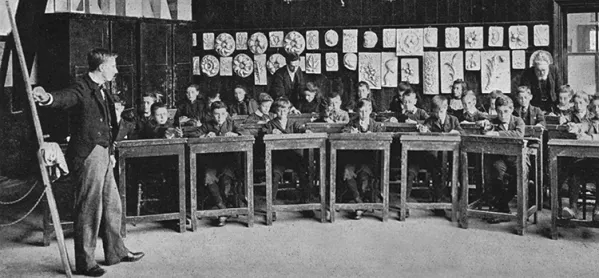
- Home
- ‘Should colleges be more like schools?’
‘Should colleges be more like schools?’

As a teacher, I was always told that one of the biggest selling points when flogging the glittering highlights of college to 16-year-old students straight out of secondary, was that it is not like school. “College is a professional environment. You’re being prepared for work. Hey, you even get to call us by out first names!” Like many colleagues I dutifully took my role in this concept pyramid scheme and without question sold it to my students.
And it’s true that we are a bit different - campuses are often sprawling hamlets housing far more people than their old place, there’s a different type of timetable, often comparatively reduced and centred on a single subject or vocation. It’s also true that colleges have less funding than the place they’ve just come from and despite how hard we work and the effort we put in, the results of those cash shortfalls may occasionally peep through the razzle dazzle. But we won’t tell ‘em that bit. Sell! Sell! Sell!
One of the main purposes of focusing on this difference is to emphasise the opportunity that college gives to students who are in need of a new start. Maybe they didn’t like school. Maybe school didn’t like them. Well roll up! Roll up! This is a reinvention hothouse. Time to shed the chains of childhood and embrace the freedom that grown-uppery brings. All those rules that nasty old school gave them are suddenly gone. “You’re an adult. This is the real world. Choose your own adventure.”
Funnels to industry
But is the idea that we are so so different really true? And more importantly, is it a helpful one?
I wonder how much of this comes from the robotic insistence of many colleges that they are simply funnels to industry, organisations shaped by the economy and local employers, rather than, dare I say it… places of education shaped by teaching, learning and the needs of the student.
Colleges are different to schools but they also have loads in common. Is that such a bad thing? It’s true that for some kids school hasn’t worked, but is school as a concept the problem or the specific school they were in for the past five years? Do they just need a change of scenery?
At this time of year when colleges are flooding with new students, getting lost in the corridors, negotiating new relationships, testing boundaries, is it helpful for us to distance ourselves from a regime they know, where structures and boundaries are clear?
If we go out of our way to dismantle established norms are we giving ourselves a load of extra work if things go wrong - if behaviour goes awry or attendance slips and sanctions have to be put in place. And let’s be honest, systems and rules exist far more stringently and with greater sanctions in the workplace than learners experience in most colleges and universities. So why bend boundaries now? How does that support our holy crusade of creating work-ready learners?
Rules and routines
I think a few more school rules and routines in colleges might be the way forward. Is that so controversial? Maybe a 15 minute group tutorial at the start of every day and straight after lunch with a specifically assigned member of support staff might work. Students’ progression might be tracked more efficiently, pastoral care addressed more rigorously, communication with parents could be more thorough and all the “have you got your equipment?” stuff that drains focus from teaching sessions could be sorted out before the learning starts. I’ve seen similar set ups work splendidly with groups of learners who have learning difficulties and disabilities, and with groups where there are behavioural issues. I haven’t seen this in the more mainstream cohorts.
We could go one step further and have a weekly assembly! Stay with me, folks… I’m not on about “All Things Bright and Beautiful” with a headmistress omni-bollocking on the side, which shaped assemblies from my youth in Victorian times. An actual assembly of people, of the whole department where one group presents to the rest, or intra-departmental peer mentoring is set up, or an alumnus comes in to speak, or collaborative projects are instigated. Maybe that’s a Wednesday afternoon thing, a time when there used to be enrichment in The FE Olden Days.
More opportunities for community, more safe, solid routines to shape the learners’ week aren’t a bad thing and don’t have to be framed in an infantilising way. School is not a dirty word. So let’s ditch this down-with-the-kids nonsense and stop pretending that we are so very different.
Sarah Simons works in colleges and adult community education in the East Midlands, and is the director of UKFEchat. She tweets @MrsSarahSimons
Register with Tes and you can read five free articles every month, plus you'll have access to our range of award-winning newsletters.
Keep reading for just £4.90 per month
You've reached your limit of free articles this month. Subscribe for £4.90 per month for three months and get:
- Unlimited access to all Tes magazine content
- Exclusive subscriber-only stories
- Award-winning email newsletters
You've reached your limit of free articles this month. Subscribe for £4.90 per month for three months and get:
- Unlimited access to all Tes magazine content
- Exclusive subscriber-only stories
- Award-winning email newsletters



